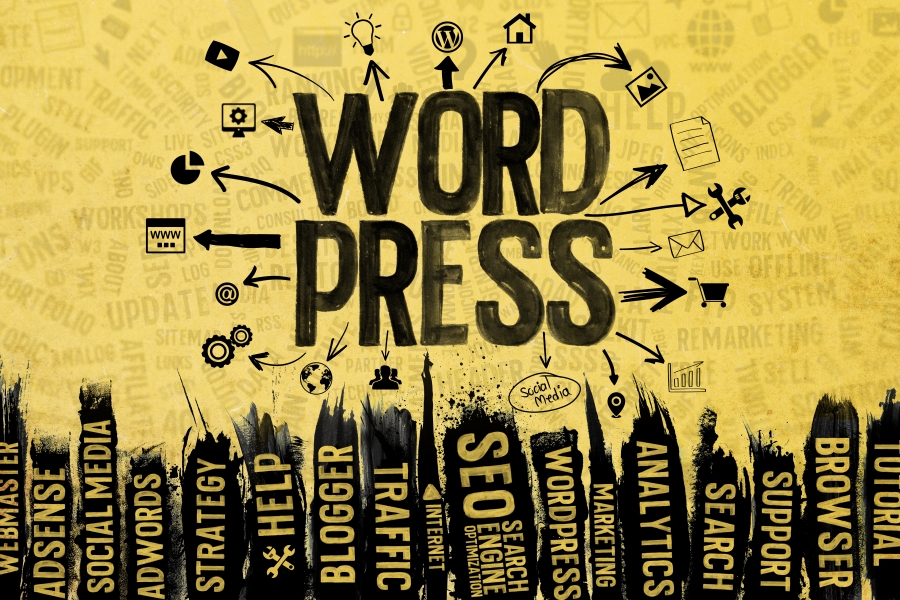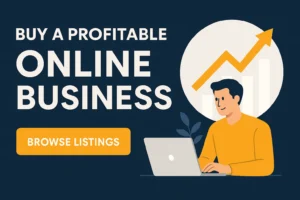Table of Contents
ToggleWORDPRESS SEO? This is a question that many people ask themselves when they are looking for ways to increase traffic to their websites. If you want your business to grow, then it’s important that you focus on how search engines rank your site and how visitors find what they’re looking for. In this blog post, we will share 10 proven tips for improving WordPress SEO so that more visitors come to your site!
Is WordPress Good For SEO?

WordPress is a fantastic platform for both building and maintaining websites. There are many tools available to help you work with your website, such as their plugin system, which has over 35 thousand options! However, without hard effort from the user in regard to SEO strategies, this CMS will not rank any higher than other similar sites on Google search engine listings.
The beauty of WordPress is that it’s easy to use for those who are not technical. If your site suffers from extensive issues, you may need more than just a CMS. To make sure your SEO doesn’t suffer because of this lack of knowledge or experience, get expert help from an experienced company.
SEO-friendly WordPress Theme

WordPress SEO is one of the world’s most popular content management systems. But when you first install it, the chances are that its default theme, ‘Twenty Twenty,’ won’t be something you want to use for your site.
Have you ever wanted to change the look of your WordPress site but don’t have a clue where to start? If so, I recommend checking out all the free themes available straight from their dashboard. They offer thousands, and they come in every shape, size, and color imaginable! Plus, there are even more premium themes for those who want something fancier than just plain old black or white.
The performance of your WordPress site is not just affected by how fast the server responds to requests but also by what scripts and plugins are bundled with it. Before installing a theme that could be too heavy for either system or software you use (slow down speed), run its demo through Google’s web. dev tool to get insights on potential issues beforehand!
You can make incredible work even with a theme that you think is limiting.
Reliable Hosting Provider
Providing your website with a reliable web host will ensure that everything runs smoothly, from site speed to connectivity and security.
One of the most important parts of hosting your own personal website is thinking carefully. Who will you use as an internet service provider (ISP)? The more reliably they can provide high-speed access, uptime in case there are any issues on their end, and good data protection for all information shared on their servers — the better it’ll be for both yourself or whoever owns the domain name; when choosing a company like HostGator which provides top-notch customer support staff 24/7— make sure that this factor is at least one thing worth considering before making up your mind.
If you want to rank well in Google, it’s important that your website is fast. The faster the site loads for users, the more likely they are to stick around and explore your content as opposed to clicking back on their browser or closing out of a window because it takes so long. You may also be tempted by cheaper hosting offers than what we offer at Inmotion Hosting — don’t! Cheap hosts often have security vulnerabilities that can hurt both the uptime and WordPress SEO performance of WordPress sites hosted with them.
“You get what you pay for.”
Free WordPress SEO Plugin
With the internet as oversaturated and competitive a marketplace as it is, people are always looking for ways to gain an edge over their competitors. For this reason, many sites use SEO plugins in order to give themselves that much-needed advantage of higher ranking on Google’s search engine results page (SERP)s. Luckily there are a couple of main options which come commonly recommended – both free to install!
Yoast SEO: One option you have when selecting an appropriate plugin would be Yoast Search Engine Optimization Plugin. Its easy functionality will help you optimize your site without having the extensive technical knowledge or programming experience necessary if using any other form of optimization software such as All In One Seo Pack.
Plugins can be a great way to save time and make your site more attractive, but they won’t do the work for you. They will help guide you in that direction by making it easier to optimize according to best practices as well as other helpful features like SEO optimization or social media integration.
WordPress SEO-Friendly Permalinks
With so many different options for structuring URLs, it can be hard to know which is the most SEO-friendly. WordPress SEO gives you a few great suggestions. This ensures your site will rank well on search engines and not get penalized by Google’s algorithm updates.
There are several permalink settings to choose from, but the most popular is ‘Post name’. This will make it easy for readers of your site to find posts via search engines and other content providers like RSS feeds or social media sites that use links automatically generated by WordPress (e.g., Facebook).
If you want a more personalized URL structure such as ‘https://www.’ then go ahead and change this setting at Settings > Permalinks in order to customize things even further!
Optimizing Pages & Posts
You have now learned the WordPress SEO basics, and you are ready to get started with optimizing your site. You know that there is a lot more work ahead of you than just installing plugins or hiring someone else to do it for you; this will be an ongoing commitment going forward!
Let’s look at some quick tips you can use before diving into other aspects of site optimization.
Keyword Research
You’re starting an SEO project, but you have no idea what keywords to target. That doesn’t sound right. When the research phase starts, your keyword list will show up, and then it’s time for some optimization!
Keyword Research is a vital part of any successful search engine optimization (SEO) strategy. Without it, we will not know which words or phrases people might be searching for when they come across our website. Keywords help us maintain relevance with users by ensuring that content aligns closely with their needs and helps them find exactly what they are looking for through accurate site navigation.
Creating a keyword list is the first step to optimizing your site. It’s important that you know what words and phrases are good for ranking, so start by brainstorming all of them!
Whether it’s from scratch or just some new content, coming up with keywords can be tricky. There are ways around this. If you’re already blogging about something related, then adding those tags as well will help when creating a keyword sheet because they’ll have similar terms in common. But if not? Sit back and think of everything – any topic on which you could write an article might make sense- before trying to narrow it down into one term/phrase per line (don’t forget plurals!)
Optimized Page Headings
Have you ever heard of an H1? It is the text that appears on your header. It can be defined in both the title field for any page as well as within content.
The importance of crafting an eye-catching headline cannot be overstated!
Headings are a way for us to provide context and relevance as readers progress through our articles. In the same vein, headings on your page should give visitors information about what they’re going to see.
The top of your page is the most important, but H2 -H6 headings should also be used. They not only give structure to content and make it easier for readers to get through text; they’re great for making sure all necessary information on a given topic is covered in-depth without cluttering up one section with too much detail.
Use Internal Linking
Internal linking is the process of using links on your site to let readers navigate between pages. It’s important for many reasons:
‘to establish topical relevancy between different pages,’ ‘to pass authority earned from external links, and most importantly. That way, visitors can enjoy more efficient navigation.
The process of linking a text is quite simple. All you have to do is highlight the desired words, click on “link” from your toolbar, and then search for pages on your site. You can also Paste URLs instead if there are any other sites that you would like to link to!
While all of these tips are important, the most crucial is to optimize your blog posts for search engines. This will help ensure that people find you when they’re searching for information on a topic like yours.







1 thought on “10 TIPS TO IMPROVE WordPress SEO”
I needed to thank you for this fantastic read!!
I certainly enjoyed every bit of it. I have got you book marked to check out new stuff
you post…